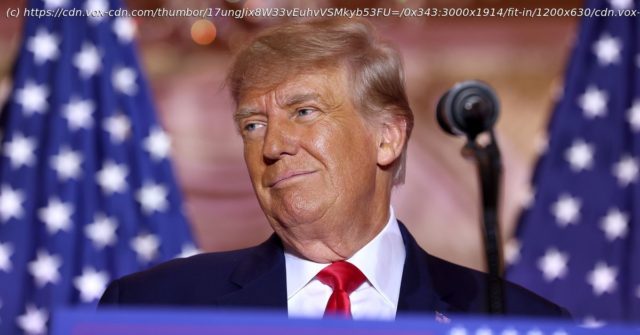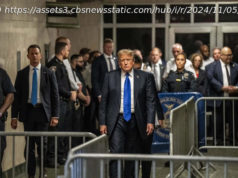The former president hasn’t stopped spreading lies and sharing harmful conspiracy theories. Now he is Facebook’s problem again.
Meta is letting its most controversial user — former President Donald Trump — back on Facebook and Instagram.
Facebook and Instagram, along with Twitter, YouTube, and Snap, suspended Trump after the former president praised rioters as they stormed the capitol on January 6, 2021. Facebook CEO Mark Zuckerberg explained suspending Trump “indefinitely” at the time by saying he had inappropriately used Facebook to incite “violent insurrection” against American democracy.
Two years later, Meta says Trump no longer poses an immediate risk to public safety. On Wednesday, it said it will end the suspension of Trump’s Facebook and Instagram accounts in the coming weeks. Its decision follows Twitter’s call last month to reverse its permanent ban on Trump.
“The public should be able to hear what their politicians are saying — the good, the bad and the ugly — so that they can make informed choices at the ballot box,” Meta president of global affairs Nick Clegg wrote in a company blog post. “But that does not mean there are no limits to what people can say on our platform.”
In the post, Clegg wrote that Meta determined the risk to public safety had “sufficiently receded,” but that Meta would add new guardrails on Trump’s future posts if they contribute to “the sort of risk that materialized on January 6,” such as posts delegitimizing an election or supporting QAnon. The new penalties include Meta limiting the reach of Trump’s posts in Facebook’s feed, restricting access to advertising tools, and removing the reshare button from offending posts. If Trump continues to violate Facebook’s rules, the company could suspend him again for a period between one month and two years.
It’s true that the US is no longer in the middle of a transition of power between presidents, nor is it under the nationwide pandemic lockdowns that had caused political frustration.
But one thing that hasn’t changed is Trump himself. The former president has not recanted any of his election-denying views that rioters said inspired their violence on January 6. He continues to spread false claims that the 2020 election was “rigged,” to attack local election workers whose job it is to count ballots, and to promote conspiracy theories like QAnon. His supporters’ belief that the election was stolen has caused democracy experts, and some three in five Americans, to fear that there could be more violence during the 2024 presidential election.
If Trump actually starts using Facebook again — which seems likely — every time he posts an election lie or veiled threat, or amplifies a dangerous QAnon theory, the company will have to decide if that post violates its rules, and what the consequences will be.
“People will be scrutinizing every single post that Trump puts up,” said Katie Harbath, a former director of public policy at Facebook and Republican political operative who now runs her own tech policy consulting firm, Anchor Change. “Life is going to be hell” for platforms like Facebook if Trump comes back, she added.
Meta had better buckle up. During Trump’s presidency, Facebook faced an employee uprising, a major advertiser boycott, and political backlash from Democratic Party leaders because of Trump’s posts on its platforms. The past two years since Trump’s ban have been a reprieve from having to minimize public fallout over Trump’s posts.
Now Trump is Facebook’s problem again. Why Trump might actually return to Facebook
For a while, it seemed as if Trump wouldn’t return to mainstream social media even if given the chance.






